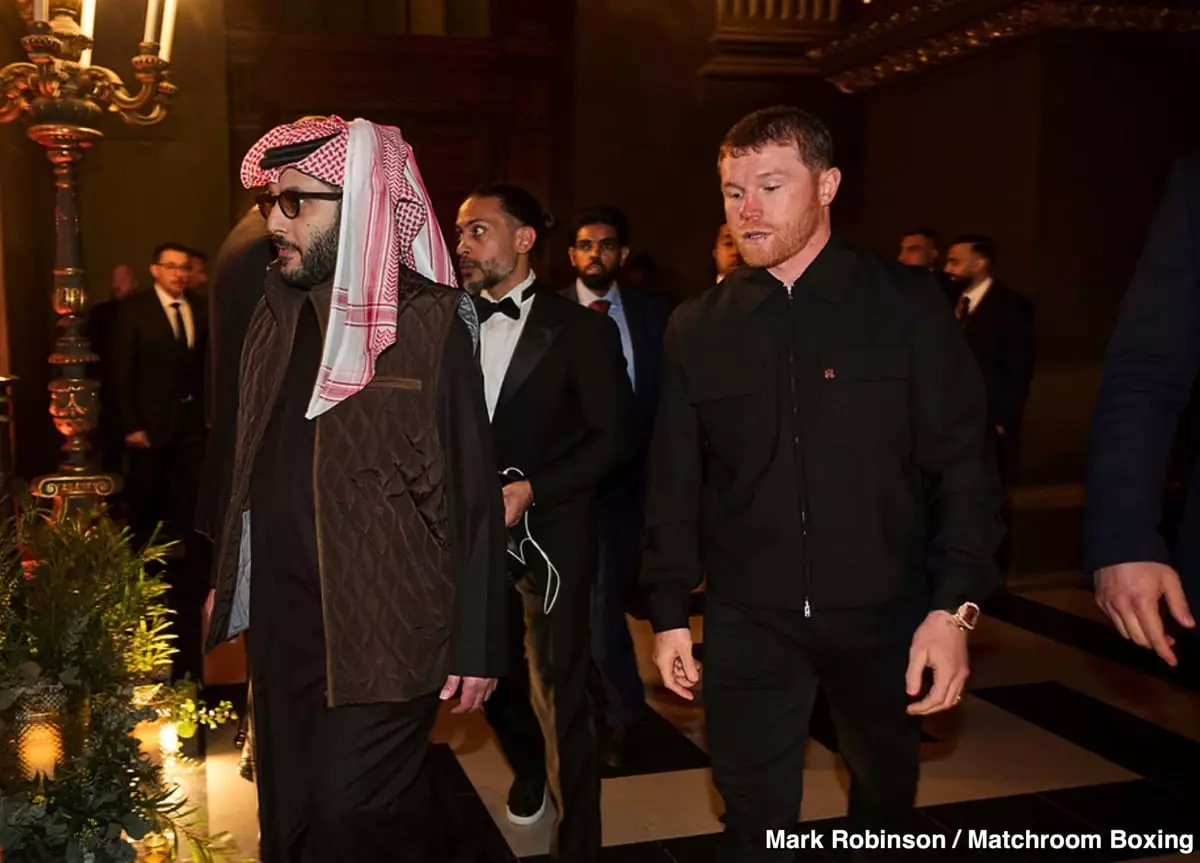In the ever-evolving landscape of professional boxing, tensions regularly flare, particularly between former champions and contemporary stars. A recent episode of Oscar De La Hoya’s series, “Clap Back Thursday,” provided the latest battleground as De La Hoya unleashed a barrage of criticism directed at Canelo Alvarez, dubbing him a “diva” in the ring. This term may seem like an excerpt from the latest gossip column, but it encapsulates a growing sentiment regarding the once-glorified image of champions. De La Hoya’s remarks not only highlight underlying dissatisfaction among veteran boxers but also draw attention to the larger principles that define this sport.
De La Hoya’s ire was sparked by Alvarez’s choice to reject a fight against Jake Paul— a controversial figure in boxing— while instead securing a lucrative four-fight contract with Turki Al-Sheikh’s Riyadh Season events. To De La Hoya, this decision epitomizes Alvarez’s prioritization of financial gain over the foundational values of loyalty and fan engagement. This critique raises substantial questions about the evolving motivations of professional fighters today. Are they merely chasing money, or is there a deeper, enduring commitment to honoring the sport and its heritage?
A core element of De La Hoya’s argument lies in the stark contrast between fan loyalty and the ethical obligations of a fighter. Traditionally, boxers have earned their reputations by engaging in challenging bouts and enduring rivalries, which are fundamental to establishing their legacies. However, Alvarez’s calculated selections of opponents cast a shadow on this tradition. Instead of pitting himself against rising stars like David Benavidez, who recently showcased his talents in a notable victory, Alvarez opted to fight William Scull— a choice that many fans deem unworthy and contentious.
The implications of such choices go beyond the personal failings De La Hoya attributes to Alvarez; they mirror a systemic transformation within the sport. Boxers today face immense financial pressures that can overshadow the sporting integrity they once held dear. As De La Hoya suggests, Alvarez seems more concerned about safeguarding his earnings than elevating the profile of his opponents or challenging himself through high-stakes matchups. This scenario perpetuates an era where boxers prioritize profitability over sporting honor, thereby diminishing the spectacle that drew fans to boxing in the first place.
De La Hoya’s assertions extend beyond personal grievances; he firmly believes that Alvarez symbolizes a fundamental shift in the legacy of boxing. The romanticized “warrior spirit” characterized by fighters such as Julio Cesar Chavez, Mike Tyson, and Sugar Ray Leonard appears to be a mere relic of the past. Instead, according to De La Hoya, boxing is now plagued by what he terms the “diva era.” This progression toward a culture that rewards avoidance over confrontation is perceived as a disservice to both the sport and the fans.
Canelo’s choice of opponents raises significant parallels with historic narratives within boxing. For instance, when De La Hoya reflects on his own matches with stars like Floyd Mayweather and Manny Pacquiao, he cites their respective abilities to elevate each other’s careers through direct competition. In stark contrast, critics observe that Canelo’s opponents often leave the ring without marking any significant moment in boxing history. This trend not only jeopardizes the essence of the sport but threatens to lower the standards for what defines a champion in today’s boxing environment.
As De La Hoya continues to voice his discontent, his claims resonate with a substantial faction of boxing aficionados craving authenticity in the sport. They yearn for champions who demonstrate grit, humility, and, above all, a willingness to face adversity in the ring. Though Alvarez has undoubtedly achieved considerable success, the question remains whether he is shaping a future presence that resonates with the essence of sport.
Ultimately, boxing can no longer afford to rest on its past laurels. If fighters remain consumed by financial pursuits rather than the competitive spirit that characterized earlier generations, boxing risks fading into the backdrop of popular culture. Echoing De La Hoya’s sentiments, the message is clear: Canelo Alvarez and his peers should remember that the legacy they choose to create today will define the sport’s tomorrow.

